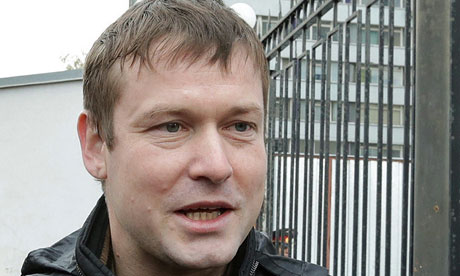By Alexandra Sandacz
Impunity Watch Reporter, Europe
MOSCOW, Russia – Russia passed a new law that allows the government to block certain Internet sites with the purpose of protecting children from harmful Internet content. The government aims to ban websites that contain sexual abuse of children, details about how to commit suicide, encouragement of drug use, and sites that solicit children for pornography. The government is able to blacklist and force certain sites offline without a trial.

The houses of parliament approved the law, and President Vladimir Putin signed the law in July.
The new controversial “blacklist” law that aims to protect children has prompted fears of censorship.
Information rights expert, Ilya Rassolov, states, “This law can be seen as one of the elements that can, if the need arises, curb freedom of speech.” Similarly, Yuri Vdovin, vice-president of Citizens’ Watch, said, “Of course there are websites that should not be accessible to children, but I don’t think it will be limited to that. The government will start closing other sites – any democracy-oriented sites are at risk of being taken offline. It will be [an attack on] the freedom of speech on the internet.”
Free speech advocates fear that the implementation of this “blacklist” law could open the door to widespread censorship. Critics also fear that the government will use the new law to block opposition websites. For example, Reporters Without Borders criticized the Russian government for failing to “resolve the law’s contradictions and to eliminate those that pose threats to freedom.”
In contrast, the country’s telecom minister, Nikolai Nikiforov, believes the concerns of censorship were over exaggerated. He states, “Internet has always been a free territory. The government is not aimed at enforcing censorship there. LiveJournal, YouTube, and Facebook showcase socially responsible companies. That means that they will be blocked only if they refuse to follow Russian laws, which is unlikely, in my opinion.”
Ilya Rassolov declares, “The law simply spells out the rules of the game, the norms according to which this is done. Despite all the talk surrounding this law and how it can be used, it’s still better to have transparent procedural norms than not. How this law will be implemented is another issue.”
For further information, please see:
The Atlantic — Russia’s New Internet Blacklist – 2 November 2012
The Huffington Post — Russia’s ‘Internet Blacklist’ Law Will Fuel Internet Censorship Say Human Rights Groups – 1 November 2012
RFE/RL — Russia’s Internet ‘Blacklist’ Law Sparks Free-Speech Fears – 1 November 2012
BBC News — Russia Internet Blacklist Law Takes Effect – 31 October 2012




